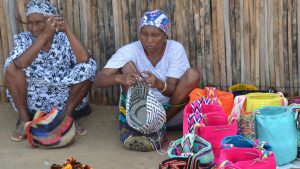
This year is the 60th anniversary of the Voting Rights Act of 1965, the federal law that promised equal access to voting regardless of race or religion. The document was a milestone in the movement championed by Martin Luther King, Jr. Among the actions that prompted the legislation was a series of violent confrontations between protestors and officials intent on preventing their progress, including law enforcement officers’ attack on hundreds of marchers on the Edmund Pettus Bridge in Selma, Ala. Many civil rights advocates say the country is now dismantling the progress that King devoted his life to that has helped Native Americans and so many others.
GUESTS
Dr. Sandy Grande (Quechua), professor of political science and Native American and Indigenous Studies at the University of Connecticut
Nick Tilsen (Oglala Lakota), founder and CEO of the NDN Collective
Wenona Singel (Little Traverse Bay Bands of Odawa Indians, Little River Band of Ottawa Indians, the Burt Lake Band of Ottawa and Chippewa Indians, and the Grand River Bands of Ottawa Indians), associate professor of law and director of the Indigenous Law & Policy Center at Michigan State University
Caroline LaPorte (Little River Band of Ottawa Indians descendant), staff attorney with the Indian Law Resource Center and associate judge for the Little River Band of Ottawa Indians
Break 1 Music: Leadership Song [Naaí’áanii Biyiin] (song) Radmilla Cody (artist) K’é Hasin (album)
Break 2 Music: Elle Danse [Boogat Remix] (song) Mimi O’Bonsawin (artist)


